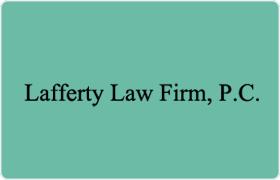Williamson County, TN Reorganization Lawyers
Sponsored Law Firm
-
 x
x

Click For More Info:
-
Lafferty Law Firm, P.C.
1321 Murfreesboro Pike Suite 521 Nashville, TN 37217» view mapBankruptcy & Debt Over 30 Years Of Experience
Susan S. Lafferty is a CPA and Attorney who enjoys helping people with financial problems. She is located in Nashville, TN where she has lived for over 30 years.
800-936-9071
Not enough matches for Williamson Reorganization lawyer.
Below are all Williamson lawyers.
Harlene Labrum
✓ VERIFIEDHarlene Labrum is a practicing lawyer in the state of Tennessee. Attorney Labrum received her J.D. from the Nashville School of Law. It is important ... (more)
Tiffany Johns
✓ VERIFIEDAttorney Tiffany Johns is different from many lawyers in Middle Tennessee who practice family law. With a background in marketing and entertainment la... (more)
John Michael Ballard
✓ VERIFIEDJohn Ballard is a third generation attorney following in the footsteps of his grandfather, Jack Butler, and his father before him, General Howard Butl... (more)
RANDALL K. WINTON
✓ VERIFIEDRandall Winton of Winton Law provides legal services throughout Nashville, Davidson County, Williamson County and Middle Tennessee for a variety of cl... (more)
Benjamin Papa
FREE CONSULTATION
CONTACTFREE CONSULTATION
CONTACT Susan Lafferty Nashville, TN
Susan Lafferty Nashville, TN Practice AreasExpertise
Practice AreasExpertise




